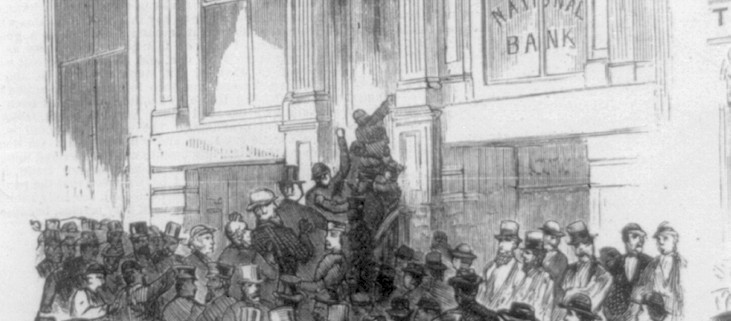A Bank Failure and a Political Transformation
One hundred and forty-seven years ago the banking empire of Jay Cooke, a financier who had bankrolled the North during the Civil War, failed. The event rippled through the financial markets, setting off the Panic of 1873, widely recognized as the precipitating event of a long period of economic contraction during the late 19th century. In fact, these years from 1873 to 1896 were, until the 1930s, labeled The Great Depression, and like the latter version, this one caused a tectonic shift in American politics.
The reason is that in some respects, the “great contraction” of the late 19th century was engineered, as the federal government, bowing to economic orthodoxy and banking and business interests, sought to return the nation to the gold standard after Civil War experiments with paper and silver currency.
The policy benefitted middle-class and industrial creditors but devastated rural and working-class debtors. By the turn of the century, an influx of gold from overseas stemmed the long deflation, but not without adding a pronounced economic populist streak to the anti-strong federal government and white supremacy base of the Democratic Party—traits that would, after another century’s tumult, come to be taken up by the modern-day Republican Party.


